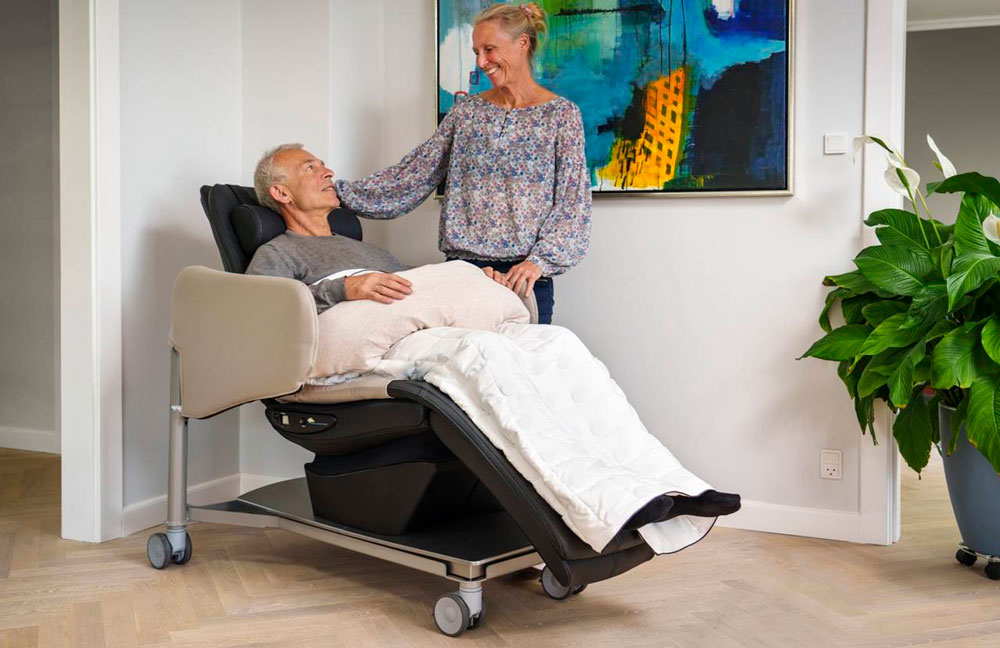Effect of Nordic Sensi® Chair on Behavioral and Psychological Symptoms of Dementia in Nursing Homes Residents: A Randomized Controlled Trial
Background: Behavioral and psychological symptoms of dementia (BPSD) are present in most people with dementia (PwD), including Alzheimer’s disease. There is consensus that non-pharmacological therapies represent the first line of treatment to address BPSD.
Objective: We explore the efficacy of the use of a rocking chair (Nordic Sensi® Chair, NSC) in the treatment of BPSD in nursing home residents with moderate and severe dementia.
Methods:We carried out a 16-week randomized, single-blind, controlled, clinical trial with PwD admitted to nursing homes. Participants were assigned to a treatment group (n = 40) that received three times a week one session per day of 20 minutes in the NSC and a control group (n = 37). The Neuropsychiatric Inventory-Nursing Home (NPI-NH) was used as primary efficacy outcome. Occupational distress for the staff was evaluated using the NPI-NH Occupational Disruptiveness subscale (NPI-NH-OD). Statistical analyses were conducted by means of a Mixed Effects Model Analysis.
Results: Treatment with the NSC was associated with a beneficial effect in most of BPSD, as reflected by differences between the treatment and control group on the NPI-NH total score (mean change score –18.87±5.56 versus –1.74±0.67, p = 0.004), agitation (mean change score –2.32±2.02 versus –0.78±1.44, p = 0.003) and irritability (mean change score –3.35±2.93 versus –1.42±1.31, p = 0.004). The NPI-NH-OD total score also improved the most in the treatment group (mean change score –9.67±7.67 versus –7.66±6.08, p = 0.003).
Conclusions: The reduction in overall BPSD along with decreased caregiver occupational disruptiveness represent encouraging findings, adding to the potential of nonpharmacological interventions for nursing home residents living with dementia.
These results may have clinical significance in choosing non-pharmacological therapies for BPSD in PwD. The reduction in overall BPSD along with decreased in caregiver occupational disruptiveness and improved quality of life for residents suggest that the NSC represents an encouraging new nonpharmacological approach to improving BPSD of nursing home residents with dementia. The results suggest that NSC is an intervention with potential interest for use in nursing homes as part of the PwD care plan. This study should inspire the design of future long-term randomized controlled trials that contribute to supporting the use of the NSC as a non-pharmacological person-centered intervention for improving BPSD in PwD in nursing homes.
Journal of Alzheimer´s Disease 96 (2023) 1609–1622

